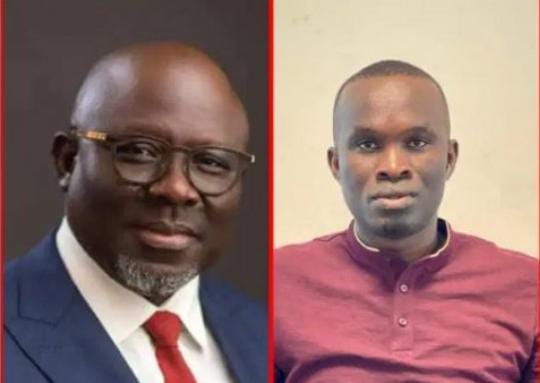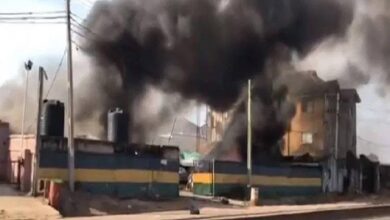Cybersecurity expert faults Delta over insecurity claims

(DDM) – A cybersecurity expert, Christian Ijeh, has accused the Delta State Government of attempting to downplay insecurity in the state despite evidence of worsening violence in several communities.
Diaspora Digital Media (DDM) gathered that Ijeh, an engineer from Agbor who now resides in Poland, faulted recent comments made by Fred Latimore, Director-General of the Delta State Bureau of Orientation and Communication, who claimed that insecurity had reduced in the last few months.
Ijeh said such remarks were misleading, insensitive, and disconnected from the daily experiences of Delta residents struggling with threats to their lives and property.
He warned that dismissing public fears with media statements could deepen citizens’ frustration and embolden criminal groups to act with impunity.
Citing a personal example, Ijeh recalled that armed robbers once raided his brother’s home in Warri for over an hour without any response from the police, despite multiple distress calls.
He argued that this incident underscored the weakness of the state’s security response system and the failure of authorities to invest in rapid intervention capacity.
According to him, kidnappings, armed robberies, and cult clashes continue to plague areas such as Warri, Ughelli, and Sapele, while rural communities also face frequent attacks by bandits.
The cybersecurity expert stressed that insecurity was not limited to urban centres but extended to farming villages where residents often abandon their lands out of fear.
Observers note that Delta State, as part of the Niger Delta, has historically struggled with security problems linked to oil bunkering, militancy, and youth unemployment.
Analysts point out that while oil exploration has enriched elites, it has also fueled inequality, poverty, and widespread frustration among local youths.
In some cases, these grievances have been exploited by cult groups, political thugs, and criminal syndicates to recruit young men into violent activities.
Critics argue that the state government has focused more on public relations than concrete measures, with official narratives frequently contradicting reports from affected communities.
Ijeh suggested that Governor Sheriff Oborevwori should embrace technology-driven solutions, including digital surveillance cameras, drone monitoring, and data analysis tools to track crime patterns.
He recommended that local police be equipped with modern communication gadgets and vehicles to respond swiftly to incidents across Delta’s thirty-three local government areas.
He also called for structured collaboration between community vigilantes and security agencies, noting that residents often have intelligence that police cannot access on their own.
Civil society groups have long demanded reforms in Delta’s security sector, warning that unemployment and lack of opportunities continue to fuel the cycle of violence.
Reports from communities in Ughelli North and Sapele confirm a rise in kidnappings, with traders, students, and transport workers often targeted for ransom.
Residents also complain that police stations are understaffed and poorly resourced, leaving entire communities vulnerable when criminals strike.
According to data from security trackers, Delta State consistently ranks among the top states in Nigeria with reported cases of abduction and cult violence.
Experts say restoring peace will require not only security reinforcements but also social and economic interventions to address poverty and restiveness.
Ijeh concluded that the government must drop what he called “cosmetic statements” and instead develop a long-term strategy that restores confidence, secures investments, and protects ordinary citizens.
Post Views: 8




